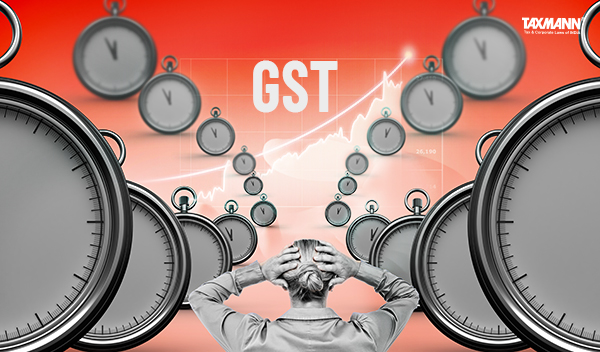[Opinion] Whether Principle of Natural Justice Be Restricted Up to Time Limit Prescribed Under GST Law?
- Blog|News|GST & Customs|
- 3 Min Read
- By Taxmann
- |
- Last Updated on 19 June, 2024

Dhaval H. Patwa – [2024] 163 taxmann.com 497 (Article)
Every statute has its own purpose to implement and no statute can be succeeded after its enactment as law without adherence of principles of natural justice. In GST law also proper care has been taken to follow principles of nature justice, whether it is matter of time limit to submit reply or personal hearing or to consider reply while passing order and that is why each and every proceedings have its own prescribed time limit to comply for the tax payer and most of them have time limit to complete by the tax authorities also.
Since there is time limit prescribed to comply with the specific proceedings in GST law, can we say that principles of natural justice have been taken care by the concerned authority by allowing the tax payer to comply it within time frame permitted by GST law? Let’s try to get answer by referring some of the recent case laws pronounced by different High Courts.
- Comfort shoe components v. Assistant Commissioner [2024] 161 taxmann.com 316/(2024) 17 Centax 189 (Mad.).
1. Facts of the case
In this case petitioner has not filed their returns for the period December-2022, January-2023 & February-2023 within prescribed time limit due to financial difficulties. Hence proper officer has passed the best judgement assessment order in terms of the provisions of Section 62(1) of the GST Acts, 2017 on 28.03.2023 for the month of December-2022 & January-2023 and on 10.04.2023 for the month of February-2023.
As per the provision of Section 62(2) of the GST Acts, if an assessee file his returns within a period of 30 days from the date on which the assessment order has been served to him, the said assessment order passed by the department will be deemed to be withdrawn.
In the present case the petitioner had filed the returns for the month of December-2022 and January-2023 on 30.04.2023 and for the month of February-2023 on 24.06.2023 which was beyond the prescribed time limit of 30 days and hence department had denied to accept such belated returns.
2. Observations & findings
In the present case, Hon’ble Madras High Court has observed that the idea of implementation of this provision is to afford an opportunity to the registered person to furnish and file the returns within a period of 30 days from the date of service of assessment order which was passed under Section 62(1) of the GST Acts. Department can make the best judgement assessment order within a period of 5 years from the end of financial year, for which the registered person is liable to file the annual return. In this case the period of 5 years will start on 01.01.2024 and ends on 31.12.2029 hence time limit is available upto 30.01.2030 (i.e.30 days from 31.12.2029) to file the returns . If department passes the best judgement order at the earliest point of time, the legal right of the registered person cannot be taken away. If the registered person was not able to file the returns within a period of 30 days for the reasons, which are beyond his control the said delay may be condoned upon providing of sufficient reasons by the said person. The limitation of 30 days period prescribed under Section 62(2) of the acts appears to be directory in nature and the assessee was not able to file the returns for the reasons, which are beyond his control, certainly the said delay can be condoned. At any cost, the right to file the returns cannot be taken away stating that the registered person has not filed any returns within a period of 30 days from the date of best judgement assessment order. If application is filed before the authority concerned with sufficient reasons for non-filing of return within the prescribed time limit as per Section 62(2) of the Act same shall be considered on merits. If the authority is satisfied with the said reasons, they can condone the delay and permit the petitioner to file the returns.
3. Held
Hon’ble Madras High Court has disposed of the petition by directing the petitioner to file an application for condoning the delay in filing the returns and directing the department to pass order by taking into consideration of the reasons provided by the petitioner for non-filing of returns within a period of 30 days from the service of best judgement assessment order.
Click Here To Read The Full Article
Disclaimer: The content/information published on the website is only for general information of the user and shall not be construed as legal advice. While the Taxmann has exercised reasonable efforts to ensure the veracity of information/content published, Taxmann shall be under no liability in any manner whatsoever for incorrect information, if any.



 CA | CS | CMA
CA | CS | CMA
